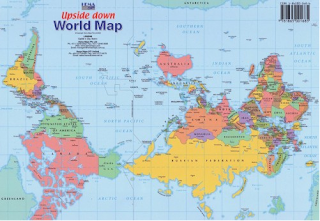.
Bad luck to all the finalists and may the worst man win!
The six finalists for the 2010 Roger Award for the Worst Transnational Corporation Operating in Aotearoa/New Zealand are (in alphabetical order): BUPA, Imperial Tobacco, Telecom, Vodafone, Warner Brothers and Westpac. There is one finalist for the Accomplice Award (accompanying Warner Brothers) – the Government. The quantity of finalists is down from the nine in 2009 but the “quality” of the six in 2010 certainly isn’t. BUPA is a British-owned operator of a chain of retirement homes, one of the very largest in this sector which has become dominated by for profit corporations, with many of them foreign-owned. It was nominated for its shabby treatment of both its residents and workers (one piece of evidence supporting its nomination was a lengthy New Zealand Herald article about a 100 year old BUPA home resident who died of scabies, to the outrage of her family).
 |
Select Committee hearings throw
spotlight on lethally addictive drug |
Imperial Tobacco was nominated for all the reasons one would expect a major tobacco transnational corporation (TNC) to make the cut, starting with the fact that several thousand New Zealanders die every year from the effects of smoking. This entirely preventable killer by a legally and lethally addictive drug was put under the spotlight in 2010 by the Select Committee hearings on its disproportionate impact on Maori. This is the first time that Imperial has been a finalist, with the tobacco industry usually having been represented among the finalists by its bigger rival British American Tobacco (the 2008 Roger winner). BAT was nominated again in 2010, so the Award organisers, who select the finalists, were spolit for choice.
 |
Habitual finalist makes
the cut yet again |
Telecom remains the only TNC to have been a finalist every year since the Roger Award started, in 1997 (although it has only actually won it twice). It was nominated for a number of reasons but the reason it went through to the finalists yet again was because of something unique to it in 2010, namely the fiasco involving the repeated collapses of its much hyped XT mobile network. Not only did these collapses (occurring over several months) inconvenience several hundred thousand customers; they also knocked out the 111 emergency service on occasion and thus endangered both life and property. That fact alone led to major criticism of Telecom by the public, media and Government.
 |
First timers: 'profiteering, and shabby
treatment of both its workers and customers' |
Vodafone makes its first appearance as a finalist (also marking the first time that both major phone TNCs have been Roger finalists). It is there for different reasons than Telecom, namely its shabby treatment of its workers. Westpac (which was also a finalist in 2009 and was the joint winner of the 2005 Roger) was nominated for a number of reasons, such as profiteering, and shabby treatment of both its workers and customers. It wasn’t the only bank nominated but it was felt that the case against it was stronger than that against the other nominee (ANZ, which won the 2009 Roger).
 |
The sole Accomplice Award nominee;
The NZ Government for forelock tugging &
groveling |
Finally, Warner Brothers makes its first appearance in the Roger Award, going straight through to the finalists, because of it providing a textbook example of a big TNC bullying a small country’s film industry and extorting further corporate welfare from a craven Government only too eager to increase the taxpayer subsidy being paid to this corporate bludger for it to deign to continue filming “The Hobbit” in NZ. As part of that nomination, the Government is the sole finalist for the Accomplice Award for its forelock tugging and grovelling to Warners and its local mouthpiece, Sir Peter Jackson; specifically, by changing the employment laws to change all film workers into contractors (with far fewer legal rights) and giving Warners tens of millions of our money to add insult to injury.
The organisers agonised long and hard before choosing these six TNCs as finalists, as there were plenty of other worthy contenders, including two previous winners (BAT and ANZ) and some major corporate villains such as McDonalds.
The winner(s) will be announced at an Auckland event in April 2011. The Roger Award is jointly organised by CAFCA and GATT Watchdog. Full details, including previous winners and annual Judges’ Reports, can be read here
The judging criteria can be found here and this year’s judges here
 |
| Warner Brothers: ‘Bullying and extorting further corporate welfare’ |
Campaign Against Foreign Control of Aotearoa
Media Release 10/12/2010






















